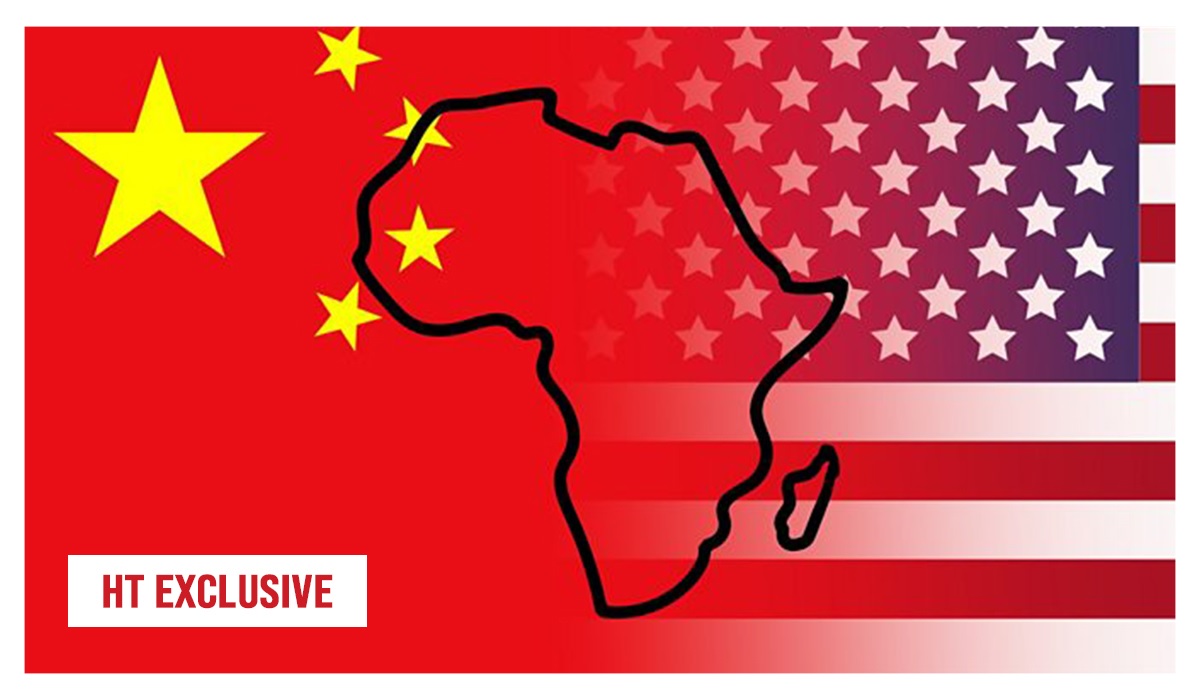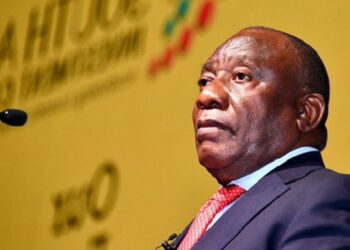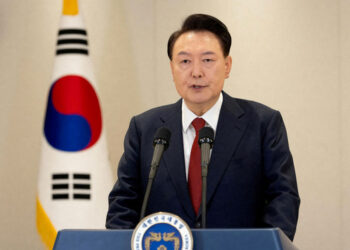By John Ikani
The United States’ recent push for two African countries to gain permanent seats on the United Nations Security Council (UNSC) has raised questions about the true motivation behind this proposal. While the move appears to answer long-standing calls from African leaders for a more equitable distribution of global power, some observers argue that the real story lies beneath the surface: the intensifying geopolitical competition between the U.S. and China.
With the Biden administration now voicing support for Africa’s inclusion on the UNSC—but without veto power—skeptics are questioning whether this proposal is part of a broader U.S. strategy to counter China’s growing influence on the continent. The ongoing power struggle between these two superpowers could be driving the latest shift in U.S. diplomacy, positioning Africa as a critical battleground in the global race for political and economic dominance.
Africa: A Pawn in Global Power Plays?
Since the end of World War II, the UNSC has been dominated by five permanent members—the U.S., China, Russia, the UK, and France—all of whom wield veto power. Despite representing over a billion people, Africa remains excluded from this inner circle. The U.S. proposal to grant two permanent seats to African countries acknowledges the continent’s growing significance but falls short of giving Africa full parity. The exclusion of veto power has been met with disillusionment across the continent.
Kenyan political analyst Cliff Mboya calls it out for what it is. “It feels like a token gesture. What’s the point of having a permanent seat on the UNSC without real decision-making power? It’s like being invited to the table but told you can’t speak,” Mboya said. The frustration is palpable, particularly when viewed in the context of Africa’s historical marginalization in global institutions.
Mboya and others argue that this move seems less about genuine reform and more about maintaining the status quo. In their eyes, the U.S. proposal is designed to placate African nations while preventing them from exercising real influence—especially in a world where China’s ties with Africa are deepening.
China’s Playbook: Silent but Strategic
China’s relationship with Africa has been steadily growing for decades, with investments in infrastructure, trade, and development through initiatives like the Belt and Road Initiative. Unlike the U.S., China hasn’t publicly proposed specifics regarding Africa’s role on the UNSC. However, it has often portrayed itself as a champion of the Global South, fostering solidarity with developing nations and using this alliance to advance its global standing.
But is China truly committed to empowering Africa in the UNSC? On paper, Beijing expresses support for Africa’s inclusion in global governance, but it has yet to define its stance on granting veto power to African nations. According to Paul Nantulya, a research associate at the Africa Center for Strategic Studies, “China’s approach is all about ambiguity. They’ve talked a good game about supporting Africa’s interests, but when it comes to concrete details, particularly around veto power, they’ve been noncommittal.”
This calculated vagueness allows China to reap the diplomatic benefits of solidarity with Africa while avoiding potential disruptions to its own strategic interests. For Beijing, supporting African nations rhetorically maintains its image as an ally of the Global South, but allowing them actual veto power could introduce complexities that run counter to China’s global objectives.
U.S.-China Competition: A Proxy War in Africa?
The competition between the U.S. and China is no longer confined to trade, technology, or military influence—it’s now playing out on the political stage of the United Nations, with Africa as a key theater of engagement. By pushing for African representation on the UNSC, the U.S. may be trying to outflank China, signaling its intent to engage Africa more directly in its global strategy.
However, the U.S. proposal’s lack of veto power could be viewed as an attempt to maintain Western control over key international institutions while countering China’s growing influence. This has not gone unnoticed by African observers. “The U.S. wants to appear as though it’s leading the charge for a more inclusive world order, but without granting veto power, it’s clear they still want to hold the reins,” Mboya noted.
China, on the other hand, has pursued a more subtle strategy, strengthening its economic and political ties with African nations while steering clear of pushing explicit reforms that could disturb the global order in which it has established a strong position. Beijing’s approach may allow it to quietly consolidate influence, while the U.S. proposal risks alienating African nations already skeptical of Western motives.
African Leaders: Balancing Opportunity with Skepticism
In the midst of this geopolitical tug-of-war, African leaders are increasingly vocal about their exclusion from the UNSC. South African President Cyril Ramaphosa took the stage in New York this week, criticizing Africa’s absence from key decision-making structures that affect the continent’s future. “Africa and its 1.4 billion people remain excluded from the most important decisions,” he stated.
Yet, there’s a growing sense among African nations that the U.S. proposal may not deliver the real power they’ve long sought. For some, the U.S. offer is an attempt to exert soft power, using the promise of inclusion to prevent African nations from drifting further into China’s orbit. But as Ramaphosa and others have suggested, this may not be enough.
Some African leaders have proposed more radical reforms, such as the complete abolition of veto power within the UNSC, a move that would level the playing field for all permanent members. Such ideas, though ambitious, highlight the deep frustrations with the current system, where a handful of nations hold disproportionate control over global decisions.
The Road Ahead: An Uncertain Process
If Africa were to secure permanent seats on the UNSC, key contenders would include Nigeria, the continent’s most populous nation; South Africa, its largest economy; and Egypt, a geopolitical heavyweight. But analysts warn that the process of selecting which countries would hold these seats could become a divisive issue within Africa itself, potentially fracturing the unity needed to push for meaningful reform.
Moreover, the question remains: What’s next? The U.S. has not laid out a clear timeline for when or how these reforms would materialize, leaving African nations in a state of uncertainty. Any change to the UNSC’s structure would require a two-thirds majority in the U.N. General Assembly and approval from all five current permanent members, an enormous political hurdle.
Critics worry that the U.S. proposal could simply be a diplomatic gesture without concrete follow-through. “Until we see a real plan, African nations will continue to question the sincerity behind this move. It feels like rhetoric without real action,” Mboya observed.
A New Global Game
The race to reform the U.N. Security Council is no longer just about reshaping global governance—it’s now a stage for the ongoing rivalry between the U.S. and China. Both superpowers recognize Africa’s rising significance, and their competing strategies reflect a broader struggle for influence in the developing world.
For African nations, the U.S. proposal is a reminder that, in global power politics, nothing comes without strings attached. As they navigate the complexities, Africa’s leaders will need to weigh the benefits of engagement with the U.S. against the potential drawbacks of being drawn into a proxy competition with China.
Ultimately, Africa’s quest for UNSC representation could be the key to redefining global power dynamics. But whether it leads to real influence or simply reinforces old hierarchies will depend on how African leaders position themselves in the unfolding geopolitical game.



































